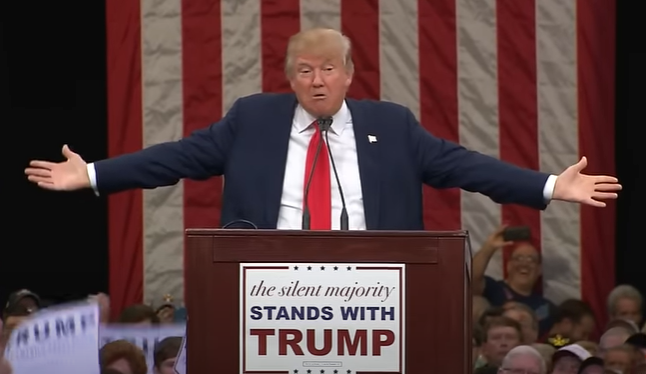Secretive U.S.–Russia Energy Talks Spark Tensions Amid High-Stakes Ukraine Peace Push
- Natalie Frank
- Aug 26, 2025
- 4 min read
Behind closed doors, Washington and Moscow weighed oil, gas, and LNG deals as leverage in fragile negotiations to end the war in Ukraine
Natalie C. Frank, Ph.D August 26, 2025

MOSCOW, RUSSIA - As peace talks between Russia and Ukraine continued, some backroom discussions took place in Moscow earlier in the month. U.S. and Russian officials, while trying to stay off the grid, explored energy partnerships during high-level talks according to multiple inside sources familiar with the situation. These back-channel discussions reportedly focused on oil, natural gas, and liquefied natural gas projects said to be potential bargaining chips designed to convince Moscow to agree to serious peace commitments in order to release the crushing weight of U.S. sanctions.
The conversations reportedly took place in the midst of Moscow negotiations during U.S. envoy Steve Witkoff’s visit, where he met with Russian President Vladimir Putin and Kremlin investment envoy Kirill Dmitriev. Sources say parts of the discussions made their way to the White House, where President Donald Trump was briefed and, in at least one case, pressured Putin for a deal that could be announced following the August 15 Alaska summit.
“The White House really wanted to put out a headline after the Alaska summit, announcing a big investment deal,” one source close to the talks said. “This is how Trump feels like he’s achieved something.”
The potential deals, while never finalized, included aspects of some of the most sensitive issues in U.S.–Russia relations. According to sources, there was a discussions about Exxon Mobil re-entering Russia’s Sakhalin-1 oil and gas project, a massive venture that Exxon abandoned in 2022 after the Kremlin’s invasion of Ukraine. That exit cost the company a $4.6 billion write-off, and its former 30 percent stake was quickly seized by Moscow. Putin, however, has since signed a decree that could allow foreign companies, including Exxon, to regain shares in the project, but only if they actively support efforts to lift Western sanctions.
Another idea considered during the talks involved Russia purchasing U.S. technology and equipment for liquefied natural gas operations, including its problematic Arctic LNG 2 project, which has been hobbled by multiple rounds of sanctions. Four sources said discussions even raised the possibility of U.S. purchases of nuclear-powered icebreaker vessels from Russia, a proposal that resurfaced during the Alaska summit.
These conversations were held against a backdrop as explosive as the issues themselves. Since launching its full-scale invasion of Ukraine in February 2022, Russia has been largely locked out of global energy markets, with sanctions cutting off access to vital technology, Western financing, and international partnerships. At the same time, Trump has repeatedly threatened to increase pressure by imposing even tougher sanctions on Moscow and tariffs on India, one of Russia’s biggest oil buyers, a move that could further hinder Russia’s ability to sustain its energy exports.
Administration officials have framed the energy talks as part of Trump’s hard-nosed dealmaking style. “Trump and his national security team continue to engage with Russian and Ukrainian officials towards a bilateral meeting to stop the killing and end the war,” a White House official said. “It is not in the national interest to further negotiate these issues publicly.”
Still, critics argue that using potential energy cooperation to tempt the Kremlin risks undermining broader Western unity on sanctions. The European Union, for example, has pledged to completely phase out Russian gas imports by 2027, yet Washington’s closed door diplomacy seems to be tilting toward bilateral agreements without working through Brussels.
For Russia, the stakes are enormous. The Arctic LNG 2 facility which is majority-owned by Novate, resumed limited natural gas processing earlier this year, but production remains crippled. Five cargoes have left the project in 2024 despite sanctions, though capacity is far below initial goals. Plans for a third processing train depend on Chinese technology, emphasizing Moscow’s increasing dependence on Beijing.
Washington, however, appears eager to pull Russia away from China’s influence. One source close to the talks suggested that U.S. officials wanted to make American technology more attractive to Moscow as part of a broader geopolitical strategy. “This isn’t just about energy,” the source said. “It’s about realigning the chessboard and weakening ties between Beijing and Moscow.”
China has been Russia’s most dependable ally since the invasion, with Presidents Xi Jinping and Vladimir Putin meeting over 40 times in the past decade. Their “no limits” partnership, declared just days before the war began, has provided Putin with both political cover and economic options in the face of Western isolation.
Whether the energy proposals gain traction remains uncertain. Exxon Mobil declined to comment on speculation about its possible return to Sakhalin-1. Rosneft and Novatek also did not respond to requests for comment. Dmitriev’s office offered no statement.
For now, the peace process itself remains fragile. The Alaska summit resulted in no significant agreement, and the war continues to rage on. But the fact that energy deals are being floated in the same breath as ceasefire talks indicates just how central oil and gas remain to the geopolitical battlefield.
Trump has long portrayed himself as a master negotiator, and his allies believe energy diplomacy could provide leverage to move Moscow closer to peace. Yet, as sources close to the talks caution, striking bargains that intertwine sanctions relief with corporate investment risks sparking fierce backlash at home and abroad.






